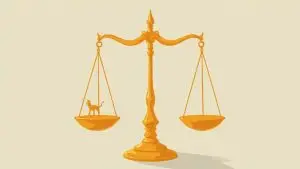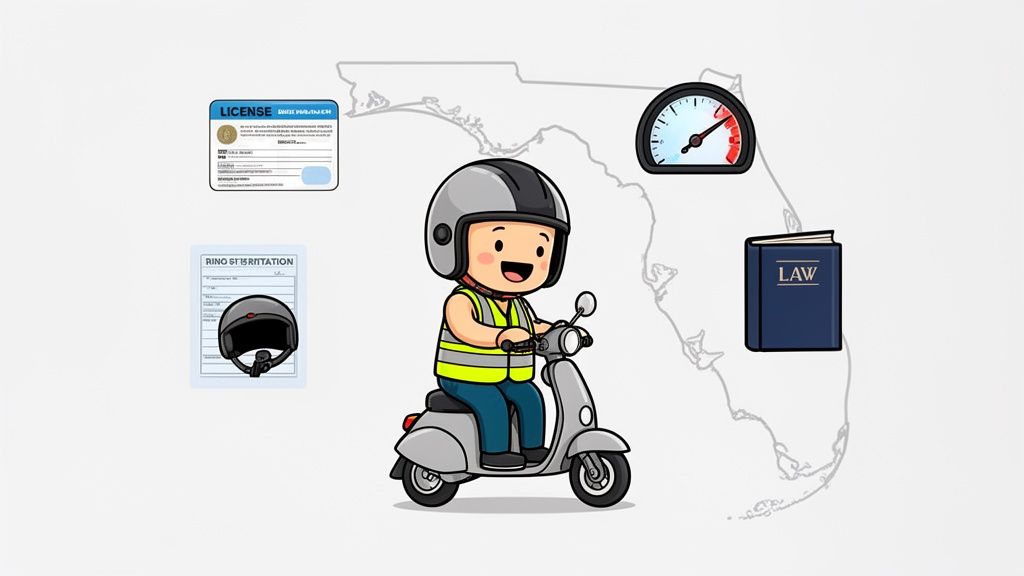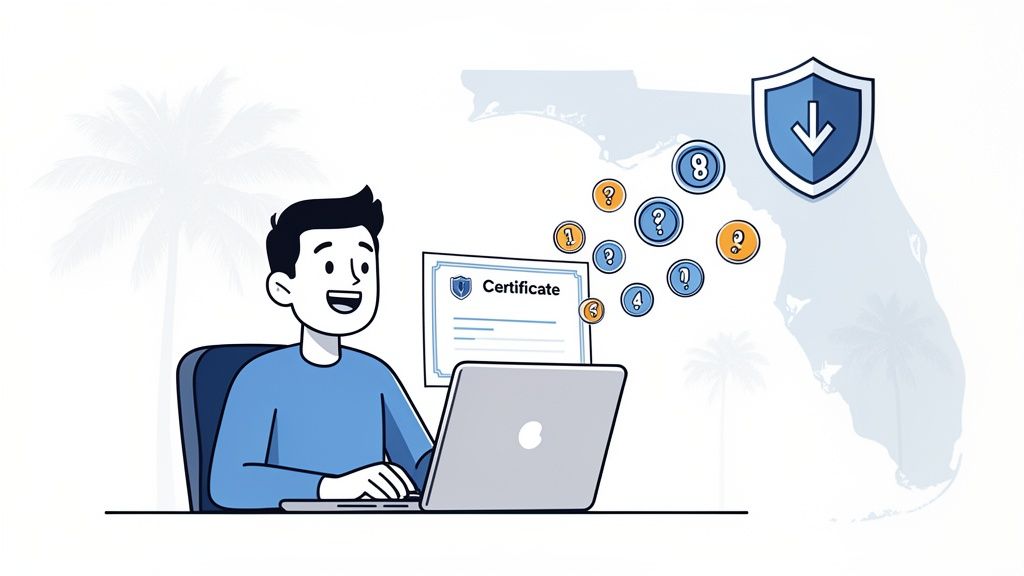Getting a traffic ticket can be stressful. Your first thought might be to pay the fine quickly. But paying it is the same as pleading guilty. This can cause problems for years.
When you pay a ticket, a conviction goes on your driving record. This means you get points on your license. As a result, your insurance costs will likely go up. Thankfully, there is a better way to handle it: deferring a ticket.
What Does Deferring a Traffic Ticket Mean?
Deferring a ticket is like making a deal with the court. It offers you a chance to keep a small mistake from turning into a big issue. Instead of pleading guilty, you agree to follow certain rules. If you do, the court agrees to dismiss the ticket.
A Second Chance for Your Driving Record
This process is sometimes called “deferred adjudication.” It places you on a probationary period. This period usually lasts for six to twelve months. During this time, your most important job is to not get any new tickets.
If you complete this period successfully, the court dismisses the ticket. It is as if the violation never happened.
The benefits are significant:
- Keep Your License Point-Free: A dismissed ticket means no points are added to your record. This is very important for avoiding a possible license suspension.
- Avoid Insurance Hikes: Insurance companies increase rates because of convictions. Since a deferral avoids a conviction, your insurance costs should not increase. For more on this, the Insurance Information Institute explains how driving records affect rates.
- Maintain a Clean Record: You can prevent a one-time error from staying on your public driving history.
How The Deferral Agreement Works
The court is giving you a chance to show you are a safe driver. You agree to their conditions. In return, they postpone any immediate penalties.
This option is usually available for first-time offenders. Drivers with a mostly clean history may also qualify. However, the exact rules can be different in each county. To learn more about what types of tickets qualify, you can research what is a moving violation.
When you get a ticket, you have several choices. Each choice has different effects on your wallet and your driving record. You can learn about road safety from government sources like the National Highway Traffic Safety Administration (NHTSA).
Your Options After Getting a Ticket
| Action | Potential Outcome on Driving Record | Impact on Insurance | Typical Requirements |
|---|---|---|---|
| Defer the Ticket | Ticket is dismissed; no conviction. | Usually no increase. | Pay court costs, avoid new tickets, sometimes take a driving course. |
| Plead Guilty (Pay Fine) | Conviction and points added. | Almost certain rate increase. | Just pay the fine online or by mail. |
| Fight in Court | Ticket dismissed if you win. If you lose, it’s a conviction and points. | No increase if you win; rate hike if you lose. | Hire a lawyer or represent yourself, attend court hearing. |
As you can see, deferring offers a great balance. It gives you control over the outcome. You avoid the high risks and costs of a court fight. It is a good opportunity to take responsibility and keep your record clean.
Figuring Out if You Are Eligible for Deferral
So, you received a ticket. Before you do anything, you must find out if you can ask for a deferral. This option is not available for every situation. Knowing if you qualify will save you time and effort.
Courts generally look at two main things: your driving history and the specific violation.
A good driving record is a big help. If you have not received a moving violation in a few years, you have a better chance of approval. The court is more likely to give a break to a responsible driver who made a simple error.
However, if you have received many tickets recently, it will be difficult. A deferral is meant to be a learning tool, not a way for repeat offenders to avoid consequences.
What Kind of Ticket Did You Get?
The type of violation is just as important as your record. Deferrals are usually for minor mistakes, not serious or dangerous driving.
Here is a breakdown of what usually qualifies and what does not:
- Good Candidates: Tickets for minor speeding (like 10-15 mph over the limit), not coming to a complete stop, or a failure to yield citation. These are common types for deferral programs.
- Poor Candidates: More serious violations are usually not eligible. This includes speeding in a school zone, reckless driving, or any ticket from a vehicle crash.
There is a good reason for this. The U.S. Department of Transportation found that speed was a factor in 29% of all traffic fatalities in 2021, as reported by NHTSA. This statistic shows why high-risk violations are treated so strictly. If you are not sure where your ticket falls, you can explore the different traffic ticket options available to get a clearer picture.
State-Specific Rules Matter Greatly
Every state, and sometimes every county, has its own rules. A rule in one place might not apply in another.
State Spotlight: New York
In New York, some counties have specific traffic diversion programs. For example, drivers may be able to complete a state-approved defensive driving course to reduce points or avoid a conviction. To see the rules, you should check the official court or DMV website for the county where you got the ticket. You can find general information on the New York State DMV website.
This is why you must check the specific rules for the court listed on your ticket. Their website is the best source for accurate and current information. Reviewing these details first will help you prepare for the next steps.
So, You Want to Defer Your Ticket? Here’s How It Works
Alright, you have the ticket and have decided to defer it. The clock is ticking. You should not wait. Most counties give you a firm deadline, often within 30 days of the ticket date, to tell the court what you want to do. If you miss this deadline, the chance to defer is probably gone.
Your first step is to contact the Clerk of Court in the county where you got the ticket. The court’s name and address are printed on the ticket. This office handles all the paperwork.
This chart gives you a simple overview of the process, from getting the ticket to the court’s final decision.
As you can see, it is a straightforward process. The key is to follow the steps in the correct order.

How to Officially Make Your Request
Courts are usually flexible and offer a few ways to submit your deferral request. You can pick the method that works best for you.
- Go Online: This is often the easiest and fastest way. Most county clerk websites have a portal for traffic tickets. You can handle everything there, from filling out forms to paying court costs.
- Do It By Mail: If you prefer a paper trail, mail is a good option. You will need to find the correct forms on the clerk’s website, print and fill them out, and mail them with your payment. It is a good idea to use certified mail for proof of delivery.
- Show Up In Person: If you are unsure about the forms, you can go to the courthouse. You can speak with a clerk, ask questions, and make sure everything is filled out correctly.
No matter which method you choose, have your driver’s license, the ticket, and payment ready.
What if You Have to Go to Court?
Do not worry. Sometimes, a judge may want to see you in person, especially if your driving record is not perfect. This is not a trial. It is usually a short hearing where the judge reviews your request and explains the terms of the deferral.
Tips for Court: If the court asks you to appear, take it seriously. Dress respectfully. Arrive early. When you speak to the judge, be polite and clear. Simply state that you are requesting to defer the ticket and are ready to meet all requirements.
A little respect can help a lot. The goal is to show the judge that you understand the situation and are taking responsibility. You almost never need a lawyer for this kind of hearing. Just be prepared and honest.
The Real Deal: Weighing the Pros and Cons of Deferral
Think of deferring a ticket as a probationary period, not a free pass. You are making a deal with the court. You promise to be a safe driver. In return, they will make the ticket disappear from your public record. It is a pause, not a total reset.
This idea of postponing issues is common. Large systems often use it to manage backlogs. For example, delays in public works projects can be costly. When small repairs are put off, they can grow into much larger problems. The U.S. Department of Transportation works to improve infrastructure to prevent these issues.
Just like those projects, deferring your ticket means you enter a waiting period. It requires patience and a promise to follow the rules carefully.
The Big Win vs. The Big “If”
The main reason to defer a ticket is clear: if you succeed, the ticket is dismissed. This means no points are added to your driving record. You also avoid a likely insurance rate increase. A single moving violation can easily raise your annual insurance costs by hundreds of dollars for three to five years.
Deferring helps you avoid that long-term financial cost. When you think about it that way, the upfront court fees often seem like a good deal. You can learn more about how to lower insurance premiums and how convictions affect your rates.
But there is always a condition. The deferral has strict rules you must follow.
The core of the agreement is this: you must keep your driving record completely clean for a set time, usually 6 to 12 months. If you get another ticket, the deal is off, and the consequences are immediate.
What Happens When a Deferral Goes Wrong
Failing to meet your end of the agreement can be expensive. If you get another ticket during your deferral period, that original ticket comes back.
Here is what happens next:
- The original ticket is immediately marked as a conviction.
- The points from that first violation are added to your license.
- You will have to pay the original fine, plus you might have new administrative fees.
- You still have to deal with the new ticket that broke the agreement.
Suddenly, you have two convictions and double the points. Your insurance company will almost certainly raise your rates significantly.
A deferral is a great second chance, but it is your only one for that ticket. You must take it seriously. This means driving with extra care, watching your speed, and avoiding all risky situations. Successfully completing the deferral period proves to the court that you are a responsible driver.
So You Got the Deferral. Now What?
Getting the court’s approval to defer your ticket is a big relief. But the work is not over. This next phase is your probation. Your most important job is to follow the court’s instructions exactly.
The court has given you a second chance to keep your record clean. Now you must show them you deserve it. The rules are usually simple but are not negotiable.
Your Core Responsibilities During the Deferral Period
Every deferral agreement has a few key conditions. While the details can vary by county, you can usually expect these three things.
- Pay Your Court Fees: First, you will have to pay an administrative or deferral fee. This is not the same as the original fine, and it has a strict deadline. If you miss this payment, the entire deal is probably off.
- Keep Your Record Squeaky Clean: This is the most important rule. You cannot get another moving violation while your deferral is active. These periods usually last for six or twelve months. Even one new ticket can void the agreement.
- Complete a Driver Improvement Course: Many courts will require you to complete a driver safety course. This is not a punishment. It is a tool to refresh your knowledge of safe driving habits.
Managing these responsibilities is very important. Let’s look at how to stay on top of everything.
Practical Tips to Nail Your Deferral
Organization is your best friend during this period. A simple mistake, like forgetting a deadline, can ruin all your hard work.
Become Best Friends with Your Calendar
As soon as you get your deferral paperwork, use your phone to set reminders for everything. Set more than one reminder for each deadline.
- The final day to pay court fees.
- Your deadline for submitting the course completion certificate.
- The exact date your deferral period officially ends.
Drive Like Your Record Depends On It (Because It Does)
For the next six to twelve months, you need to be a very focused driver. This means your phone should be put away. Your eyes should be on the road. Pay full attention to your surroundings. Obey every speed limit, stop completely at stop signs, and always use your turn signal.
Your goal is not just to avoid another ticket. It is to actively use defensive driving skills. This mindset is what the court wants to see.
Don’t Procrastinate on Your Course
If the court requires a driver safety course, sign up for one right away. The longer you wait, the more likely you are to run out of time. After you finish the course, you will get a certificate of completion. It is your responsibility to make sure the court clerk receives it before your deadline.
For this reason, many people find an approved online traffic school is a convenient and easy option.
After you send your certificate, call the clerk’s office to confirm they received it. A quick phone call can prevent big problems later. By staying organized, you can get through this period smoothly.
The Real Financial Impact of Deferring a Ticket
Choosing to defer a ticket is a big financial decision. At first, the costs can be confusing. You have to pay an upfront deferral fee. Sometimes, this fee might be higher than the original ticket fine. This can feel strange.
But you need to look beyond that initial payment. Think of it as an investment in your financial future. Paying this fee now can save you from much larger costs later.
Short-Term Cost Versus Long-Term Savings
Insurance companies do not like convictions on a driving record. A conviction is a major red flag for them. After a moving violation is on your record, your car insurance rates are almost guaranteed to increase. This increase can last for three to five years.
Let’s look at the numbers. A small rate increase of just $30 a month adds up to $360 a year. Over three years, you would pay over $1,000 in extra insurance costs.
Suddenly, that one-time deferral fee of a couple hundred dollars looks like a great deal. It is much smaller than the thousands you could pay to your insurance company.
This idea is not new. We see it in many areas. For example, think about road maintenance. The Federal Highway Administration (FHWA) works to fund repairs. Delaying small fixes leads to bigger, more expensive problems later.
Protecting Your Financial Stability
Just like ignoring a small road problem leads to a bigger one, letting a ticket become a conviction is a costly error. When you successfully defer a ticket, you keep that violation off your public driving record.
The best part is that your insurance provider will likely never know about it. This is how you keep your current rates from going up.
Here are the financial benefits of keeping your record clean:
- Avoid Premium Hikes: This is the most important benefit. Deferring the ticket is the best way to prevent your insurance from becoming more expensive.
- Prevent Future Surcharges: If you get too many violations, you could be seen as a high-risk driver. This leads to even higher fees and sometimes policy cancellation.
- Maintain Good Driver Discounts: A conviction can make you lose valuable discounts you earned for having a clean driving history.
When you look at it this way, the choice is clear. The fee for deferring a ticket is a smart move. It is a planned expense to protect you from the financial problems of a conviction. It is about being proactive to keep your record clean and your money in your pocket.
Frequently Asked Questions About Deferring a Ticket
Dealing with traffic tickets can be confusing. If you are thinking about deferring one, you probably have questions. Getting clear answers can help you decide what to do next.
Here are answers to the most common questions from drivers.
What does it really mean to defer a ticket?
Deferring a ticket is like making an agreement with the court. You ask for a probation period. You pay court costs and agree to keep your driving record clean for a set amount of time. If you follow the rules and get no new violations, the court will dismiss the ticket. The best part is that the violation does not become a conviction on your public driving record.
Will my insurance rates go up if I defer a ticket?
This is a top concern for many drivers. The good news is that in most cases, the answer is no. Insurance companies raise rates based on convictions, not just tickets. Since a deferral prevents the ticket from becoming a conviction, your insurance provider typically will not find out about it. Therefore, deferring a ticket is one of the best ways to protect yourself from a sudden rate increase.
Can any traffic ticket be deferred?
No, not all tickets can be deferred. Deferral programs are usually for minor moving violations. Courts want to give a break to good drivers who made a simple mistake. Eligible tickets often include minor speeding or failing to stop completely. Serious offenses like DUIs, reckless driving, or speeding in a school zone usually do not qualify. Your driving history is also a major factor.
What happens if I get another ticket during the deferral period?
This is something you must avoid. Getting another ticket during your deferral period breaks your agreement with the court. As a result, the original ticket you deferred will immediately become a conviction. You will get points on your license and have to deal with the penalties for both the old ticket and the new one. It is very important to drive with extra caution during this time.
Where can I find my state’s official driving rules?
You can find the official driver’s manual and traffic laws on your state’s Department of Motor Vehicles (DMV) or Department of Transportation (DOT) website. These .gov sites are the best source for accurate, up-to-date information on road rules and driving regulations in your state.






